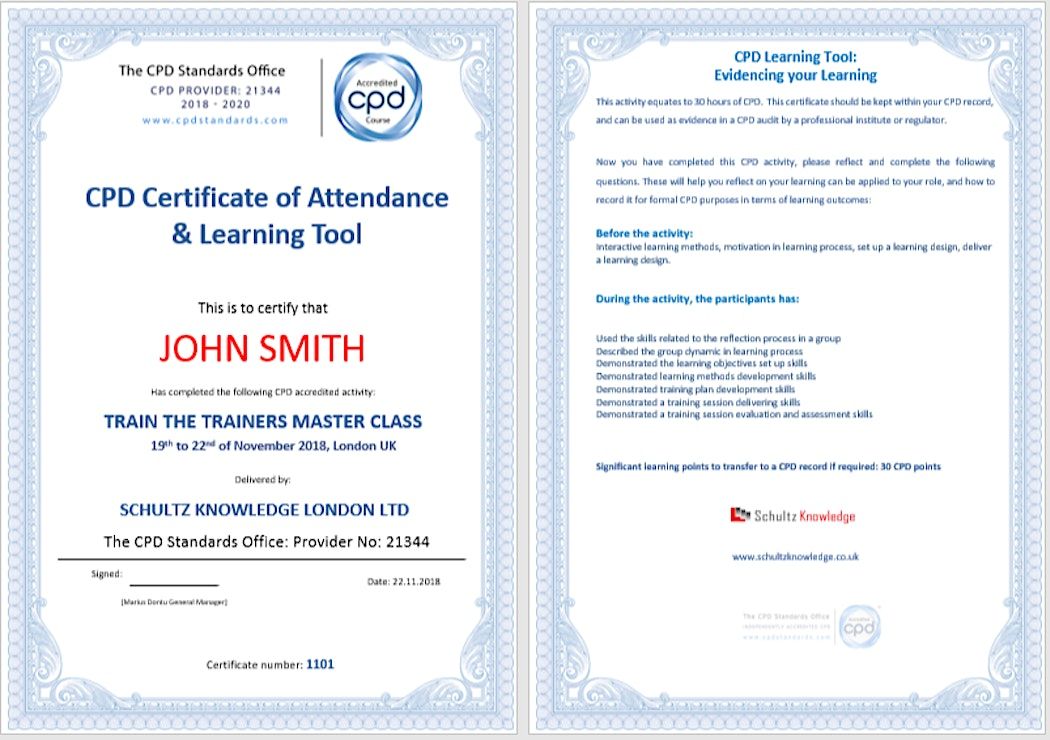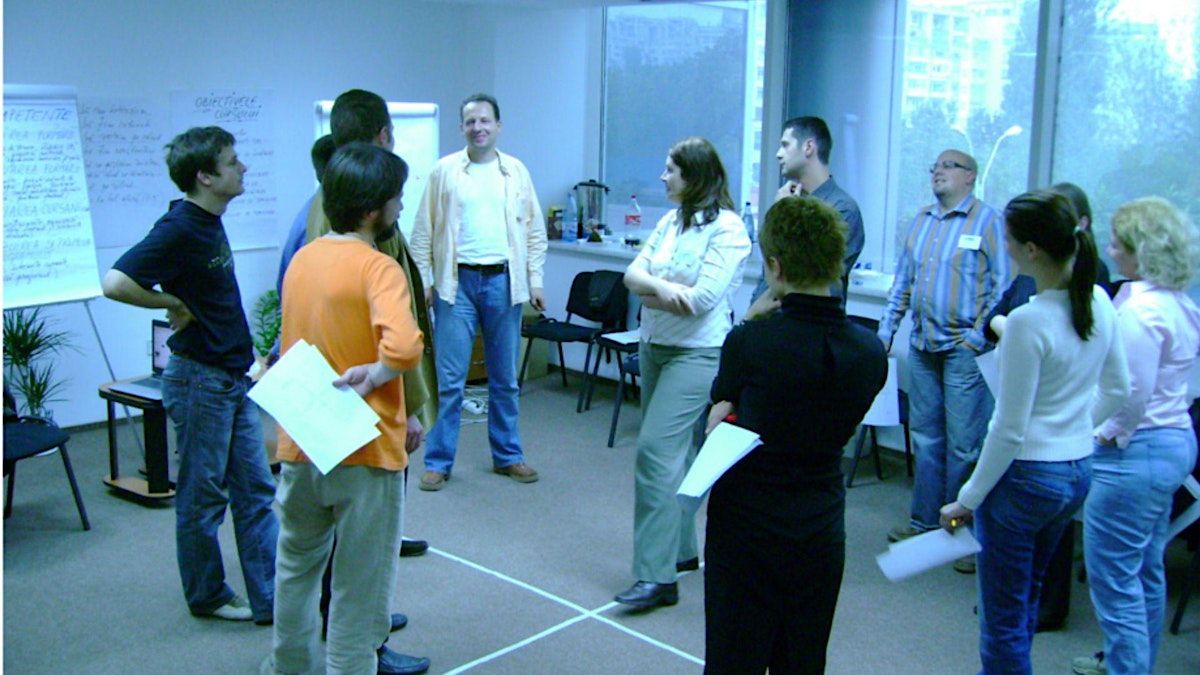
About this Event
The Schultz Knowledge, 3 days Train the Trainers, focuses on learning from a non-formal and also from a vocational point of view mixed with an agile learning approach.
The Train the Trainers program is based on applied behavioral sciences through the experiential learning approach.
At the end of the course, the participants will receive a CPD (Continues Professional Development) Certificate according to CPD Standards. They will be granted this certification after taking the final exam that consists of a practical – holding a training session on a preferred topic.
Aims: Developing the training skills.
At the end of the training program, the participants will be able to:
Apply to learn the agile approach
Describe the adult learning concept,
Demonstrate related to the reflection process in a group skills
Demonstrate related to handling difficult participants' skills
Describe the new learning concept
Demonstrate to creation of learning methods and skills
Demonstrate to creation of learning visual content skills
Demonstrate setting up training design skills
Demonstrate to set up a training kit skills
Demonstrate to facilitate a training session skills
Demonstrate evaluation and assessment training session skills
Topics:
Learning concept, Experiential learning model, Inclusion and control, Using nudge theory, Creating the power of moments (Wow moments), Exploring creativity and analytical approaches to learning design, Defining virtual reality experience, augmented reality experience, and artificial intelligence in learning, Learning plan, Needs assessment analyses, bridging the skills gap, Write a blueprint, Make a storyboard, Learning visual content (shapes, video production, animation), Learning methods (Presentation using technology, storytelling, game design, gamification, escape game), Setting time, Build your prototype, Check reality, Plan your design, Create your training kit (workbook, hand-outs), Learning delivering, Run the training design, Tricking the learner into learning, Managing difficult participants, Debriefing, Feedback, Feedforward, Each delegate will undertake practical mini-sessions through the duration of the course.
Learning assessment
What, when, and who will assess the learning outcomes, Assessment tools, Follow-up tools, and Training report
METHODS USED
The training session is a dynamic and interactive one focusing on optimizing knowledge, developing skills, and forming attitudes by using the behavioral sciences applied through the experiential method
Encouraging engagement of all participants
Creating a cooperating training environment
Supporting the participants in relating the training session to day-to-day life
Supporting the participants in finding and using the required documents and human resources that they might need
Techniques that are used when processing information:
Group discussions related to the patterns and subjects that come up due to one’s own experience
Identifying and analyzing the information
Feedback
The participants will have to supervise the process and describe the things they notice throughout it
Techniques that are used to facilitate the generalization process:
Summing up the lessons using short, concise, and generalized sentences
The group will discuss and agree upon the definitions, concepts, terms, and key sentences
Individual and group reactions to issues such as: " How do you think what you have learned and done during this session relates to day-to-day life? "
Techniques used to facilitate the application stage
Individual and group reactions to the question: "How could you apply the knowledge and experience you have acquired during this training session to be more efficient when performing your daily tasks?
Reviewing the information that was received during the training session and analyzing the conclusions to come up with new perspectives, plans, and behaviors
Change and/or development of action plans, personal goals, and the ways and means of changing one’s behavior.
The graduates will receive 30 credits of CPD Certificate of Attendance in training the trainers.
Trainer: Marius Dontu - Learning Alchemist, Schultz Knowledge (London, UK) owner, being directly involved in running the business (training and consultancy). International certified senior trainer working in this field since 1994.Experience in leading people and organizations having a very good understanding of the business environment and non-governmental environment since 1991.
Train the Trainer's Masterclass Agenda
2 025, February from 3rd to 5th, London
Day 1
9:00-10:00 Introductive Session, Ice-break
10:00 – 11:00 Agile learning
11:00 – 11:15 Break
11:20 – 13:00 Learning methods
13:00 – 13:30 Break
13:30 – 16:00 Learning methods
16:00 – 16:15 Break
16:15 – 16:30 Learning plan
Day 2
9:00 -11:00 Learning design
11:00 – 11:15 Break
11:15 – 13:00 Learning delivery
13:00 – 13:30 Break
13:30 – 16:00 Learning delivery
16:00 – 16:15 Break
16:15 – 16:30 Learning assessment
Day 3:
9:00 – 13:00 Presentation Session Delivery – feedback
13:00 – 13:30 Break
13:30 – 14:15 Check reality – feedback
14:15 – 15:00 Learning design improvements
15:00 - 16:00 Closing session


Event Venue & Nearby Stays
DoubleTree by Hilton London Angel Kings Cross, 60 Pentonville Road, London, United Kingdom
GBP 2400.00










